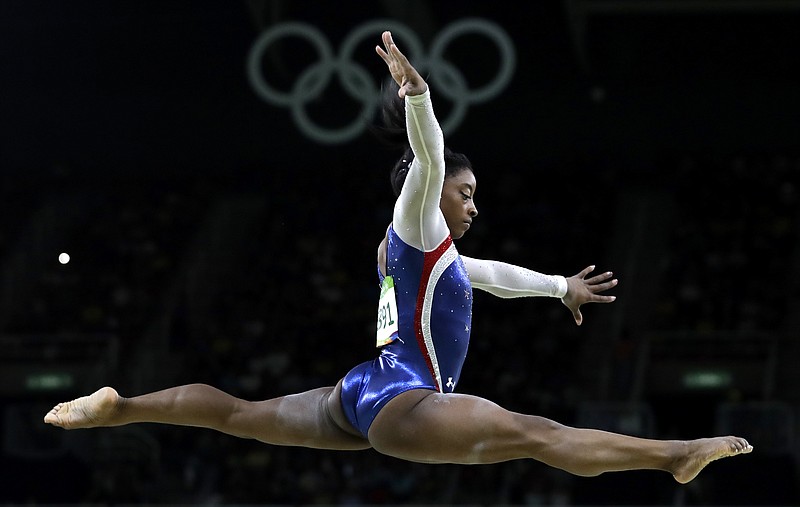The Olympic Games offers two weeks of athletes of all countries, races, cultures, genders and orientations coming together for a celebration of competition, athletic feats and sportsmanship, but its positives are not enough for those who only want to tear things down.
You can see the cracks already. And it's likely to get worse.
Sure the United States won the most medals in the Games, but the argument goes that the U.S. showing is not all that impressive considering the size of the country and all its advantages.
Out Monday in the United Kingdom Telegraph was an alternate medal table showing how the countries would rank in gold medals per million people, golds per gross domestic product and golds per number of athletes. The U.S. was only sixth in golds per athletes, 14th in golds per million people and a paltry 28th in golds based on gross domestic product.
More Olympic coverage
View more coverage of the Rio 2016 Summer Games.
Slackers!
And the U.S. winning so many medals only proves it to be the world bully that President Barack Obama and others have spent nearly a decade declaring, in so many words, that it is.
"The country with every economic advantage that got half of Russia's athletes banned for stuff you can buy at a GNC dominated the field," said a commenter on SBNation (whose response is cleaned up for grammar and punctuation). "Best part is our media loves to act like we're the Philadelphia 76ers and everyone else is the Golden State Warriors; excuse me while I go puke. But I guess the Rocky narrative is better than that of empire that squashes the field."
Never mind the grit and determination of Michael Phelps, the U.S. basketball teams and powerhouse Simone Biles. If we had any compassion at all as a country, we'd let other teams win some of the competitions. We'd say we were there only for the spirit of the Games, that we just want it to be fair for everyone.
You may laugh at the last statement, but that's part of the mantra of the ruling left in this country. By the time the 2020 Olympic Games in Tokyo roll around, we may have an edict from the White House - depending on whom is elected - that we'll only be sending athletes in sports we don't traditionally do well. Equestrian events, perhaps, or tae kwon do.
Or the federal government will mandate that the U.S. team, either as a whole or by individual sport, must roughly mimic the U.S. population by race.
Perhaps it will be the International Olympic Committee making new rules, handicapping the sports by one of the above categories - number of athletes, population of country or gross national product.
Do you doubt this has been on the minds of the politically correct?
And who wants to be a host country these days? Countries that do only open themselves up for criticism. A New York Times story in Monday's Times Free Press, at the close of the 2016 games in Rio de Janeiro, mentions cost overruns, teachers going unpaid, slum dwellers getting no love, the city's bay not being cleaned as promised and rising crime.
Sure, it says, there are new rapid bus lanes, tunnels, an expanded subway and a light rail system, plus schools and health clinics, but it cites a May report by Moody's that stated the Games would have a negligible impact on the city's ailing economy.
Nearly every city that has hosted an Olympics in the past three decades has lost money, the story goes on to say, and Oslo, Boston and Munich received public pressure to drop recent bids for the Games.
"Fewer and fewer cities are willing to host the Olympics because they are a tremendous waste of resources," the Times article quoted Andrew Zimbalist, an economics professor at Smith College and the author of "Circus Maximus: The Economic Gamble Behind Hosting the Olympics and the World Cup. "There's no sensible way to rationalize the expenditures that have gone into this."
The U.S. hasn't hosted since the Winter Games in Salt Lake City in 2002 and the Summer Games in Atlanta in 1996, the 100th anniversary of the first Games in modern history.
It makes you wonder if the Olympics will still be held by the time the 200th anniversary of the modern games rolls around in 2096.
In the meantime, while pondering the possibility of a future Games with a mandated number of transgender athletes, a maximum number of golds a country can win and wealthier countries being forced to pay the way for poorer countries (the way the U.S. economy seems to work), think back to the 2016 Games and the lightning speed of Usain Bolt, the water warrior that was Katie Ledecky and the sportsmanship of 5,000-meter competitors Nikki Hamblin and Abbey D'Agostino, who helped each other cross the finish line after a fall.
"That girl," Hamblin of New Zealand said of D'Agostino of the U.S., "is the Olympic spirit right there."
We hope that, somehow, that spirit can be preserved.
